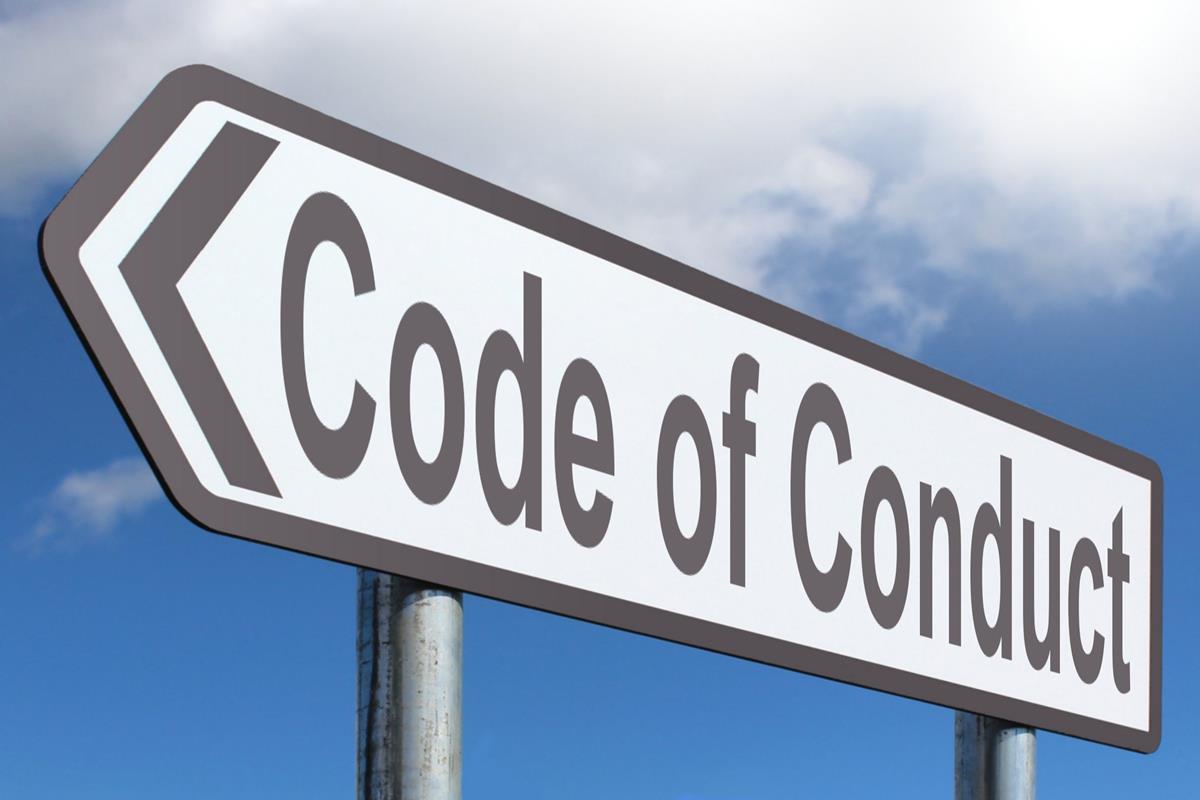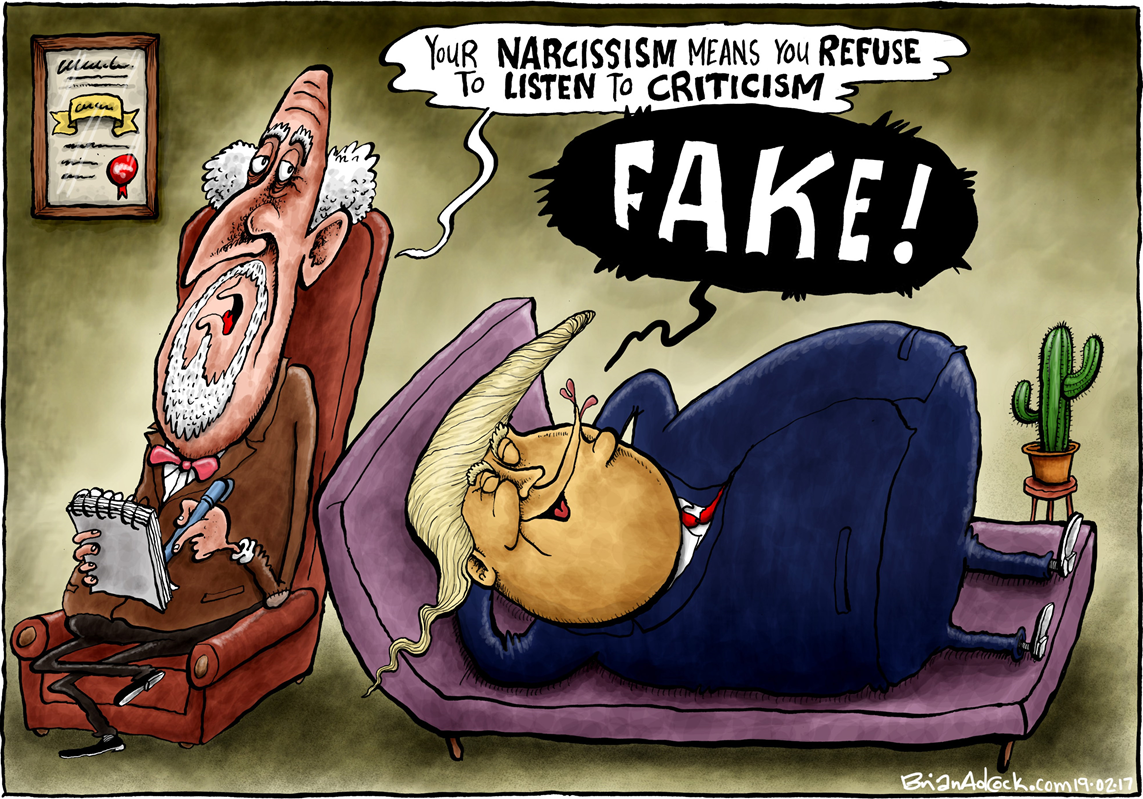
Many years ago, I played in a band where I asked the bandleader, “why do you play music for people?” He answered “Because I want to be worshipped.” Pretty much immediately, I quit the band. I knew that this was narcissism, and I didn’t want to be in a band with a narcissist. In that case, it was overt narcissism. Overt narcissism is easy to discover, but there’s another version of narcissism that is much harder to discern, harder to classify, and harder to make a decision to get away from — that is the behavior of covert narcissism.
As society and psychology evolves, we are able to better recognize and classify personality traits so that they can be more easily recognized. Once the recognition occurs, the decision is yours as to whether or not you want to continue the relationship with this person. Of course, it can be hard. Hanging out with a covert narcissist becomes strained if you shine a light on the behavior instead of silently play along. As a keyboard player who recently moved to a new town, I had a brief experience in attempting to join a band. It only lasted a couple of weeks. As I recognized the traits and discovered them through conversation, he kicked me out of the project.
Before we “Label and Dismiss”

While the clickbait title neatly and judgmentally classifies someone under a label, narcissistic personality disorder is much more nuanced. Labeling someone as a narcissist is a judgement of the person and their character. It’s better to first just notice the behavior. It’s actually the BEHAVIOR that is narcissistic. At some point, everyone displays narcissistic behaviors. It’s human nature, especially under stress, and especially if one has a history of trauma that leads them to develop maladaptive responses. Labeling someone as a narcissist can be helpful when you want to categorize someone you want out of your life, but before it gets to that point, just notice the behavior. Before you jump to calling someone a narcissist, first just acknowledge what they really are – a human who is exhibiting narcissistic behaviors. In time, through the culmination of persistent behaviors, you may come to the conclusion that they are in fact, a narcissist. But use a little caution — calling people narcissistic just because they disagree with you is a trend in this day and age. In fact, if we aren’t careful, sometimes we might be the kettle calling the pot black. It is important for us to recognize when we slip into narcissistic behaviors and first take accountability, then remediate our behavior. If someone is not willing to do this, it may be time to go in another direction. Here are some clues…
1. Unclear Boundaries / Resists Decision-Making

By not setting a clear vision or boundaries up front, the covert narcissist is able to exert control in “real time” based on their own whims. This protects them from later being called out for not respecting agreed-upon boundaries. This can be illustrated by someone who will tell you “what they don’t like” but not “what they like.” By providing only negative feedback, victims are constantly searching in the dark on how to please the covert narcissist, but never able to achieve acceptance because they are always an arms length away from success. The more you can practice setting boundaries, the more consistently you are conveying to a narcissist that their tactics do not work.
2. Surrounding themselves with superficial/beta relationships

When I first met the guitar player in my personal story, he showed up to breakfast with the drummer. The drummer made it clear that he was in the band because of the guitar player, who he admired as a musician. I later met the bassist, and the two of us immediately hit off. When the time came to fire me, the bassist was not consulted. I can’t confirm if the drummer was consulted or not (would be even more odd if he wasn’t), but I’m guessing he was, and, of course, the drummer deferred any active decision and went along. Having only experienced this dynamic for a week, and wanting to get into a cool band, I too was willing to be a subordinate to the band leader, but also wanted to explicitly call out that this is what was happening by defining my role. But, it can’t be covert if it’s called out, can it? Being around a covert narcissist can make it simple to lose your voice. It could take some time for you to notice that you’re not speaking out for yourself because the interactional patterns are so deceptive.
3. Crosses normative boundaries

To me, making executive decisions on a band without consulting all the members first is generally a bad code of conduct, unless of course, it’s “their band.” I was driving towards that observation (it was his band) and asking explicitly if it was the case. However, by not explicitly stating it, it can remain covert where people think they have a voice, but that voice is not heard. Me bringing it up might have created vulnerability and uncovered the covertness. Also, I was fired via text. Who breaks up with someone via text?
4. Lack of Empathy with a focus on Self-importance of their own opinion

In some bands, things are a democracy. In other bands, the band leader is clearly the visionary. I like to be up front about where a given band stands, and I’m willing to play in either format. To understand, I start to ask questions to steer my understanding. In this band, we started steering towards a stated vision of “fusion” or “jazz fusion.” After two weeks of learning all the covers, the guitarist sent me one of his songs for me at add my part. I spent a day coming up with the most eclectic polyrithmic keyboard licks and packaged it with two originals I wrote that were “in the genre of fusion.” I then sent it to the band. The guitarist replied directly to me and systematically dismantled every single piece I added to his work, then said both my songs were not in the genre and would not be played. He ended it with “thanks for your creative input.” Ok, I understand, some people are particular about their songs, so I began to ask questions. I asked if he wanted to write my part. I asked if he could suggest what to try. I acknowledged my role to find what the bandleader sought. Most questions were ignored or skirted, but I was told that we would talk next rehearsal about vision, direction, and roles. I re-recorded my part with more synchronization instead of syncopation but didn’t get any feedback on it whatsoever before I was let go via text.
5. Has double standards / Feels above the rules
After the discussion on what was in the genre of jazz fusion, I reviewed the song list he sent. It turned out, he wanted the band to learn a basic 12-bar blues cover that clearly was miles away from Jazz Fusion. I never got a chance to call him on that before I was fired, but it was clearly a double standard. I later quipped that the genre was not jazz fusion, but “a fusion of the guitar player’s interests.”
6. Use of Passive Aggressive Behavior

By the time these questions started floating around (If our genre is not what I think it is, then what is it?) I get an email the morning of my firing that says “Here’s a direct quote from the keyboard player wanted ad I ran on Craigslist to refresh your memory regarding genre, direction, feel etc.” In it was a list of guitar-centric bands loosely related to each other. I gave a listen to the only one that had keyboards in it (in fact, they were still active and hadn’t had a guitar in it since 1985). I couldn’t help but notice the overlap with my style.
I was puzzled, and a little put off by the passive aggressive nature of the message, so I admittedly replied with an equally passive-aggressive “direct quote of my craigslist reply” and outlined my influences, how they overlapped with his, and the gap in the middle (which we also discussed at our first breakfast). I also made it clear in my email that I respected his vision and I’d love to fill the gap as a learning experience. I asked for some albums I should study to get the sound. No reply. I followed up with a text to notify him that I downloaded the first album of the first band in his list to study, and his reply was my termination, including the classic phrase “nothing personal.” – When someone says that, I can’t help but think it’s personal.
7. Is reactive to questioning or criticism / Threatened by honesty and directness
I’m huge on open communication and asking questions. I’ve even been nicknamed “20 questions” because of my use of the Socratic method. Unfortunately, this is not a way to get into the good graces of a covert narcissist, so the end result was inevitable. After the initial ego-pain of getting fired wore off, it became clear that I dodged a bullet.

I’m grateful that I was able to relate all of this in just a week. In searching for answers, I began to ask how I might have contributed to the abrupt change of heart. For one, email is probably not the best way to communicate nuanced things like this, and most of our communication was email. Secondly, I do admit that excessively defining things is on the “Asperger’s spectrum.” Aspys are incompatible with covert narcicissts as the Aspy bluntly and innocently calls out the narcissist through a process of defining boundaries. Also, I am human. I’m not going to lie that my ego was hurt by the interaction. I’m not going to lie that I met passive aggression with passive aggression. I’m not going to lie that I too sometimes lack empathy and suffer from “mind blindness” (which is why I ask 20 questions). So, it’s not to say that covert narcissists intend to behave this way. Like Aspergers, it’s subconscious. Often, it’s even covert to themselves.
The real question is not around blame or fault, but only, do you want to hang out with this person and be in a musical passion project with them, or will it cause enough pain that you should go another direction? At the end of the day, I was willing to “fall in line” on some levels, but only if I could explicitly state that this is what was happening, because being honest with myself and with the band was the only way I could live in that environment. Unfortunately, you can’t continue with a covert narcissist unless the behavior remains covert.
What does this have to do with meditation?
Everyone has life experiences like this. The way to turn it into a meditation is to make it an awareness exercise. Take for example, this exact blog, but replace the word “narcissist” with “a person who is displaying the traits of narcissism.” These are all behaviors. How can we behave ourselves.
“Is this person a narcissist, or am I just over-reacting?”
- Use DBT. Does it fit the facts? Maybe he just thought I asked too many questions or I was too intense about “figuring it out,” and he didn’t have the patience. That would be personal, and it was “nothing personal.” Maybe he didn’t like my playing style (even though he said he did at our one rehearsal), or perhaps the one (or two) recordings created no hope in collaborating. Not directly mentioned, but possible. I suppose there was also the possibility that it is one of these and he wanted to “be polite” instead of honest.
- At the end of the day, categorization is just a description, but what leads us to make categorizations? Be aware of your judgements and where they come from. What are the facts? How can you grow from the experience in the future to achieve a more effective outcome?
2. Feel my feelings: Go into the emotions that arise from getting dumped via text
3. Opposite Action: Look on the bright side and go to open blues jam to let off steam. Start a new band with the attributes you wish you’d seen in the previous one.
4. Silent Meditation: meditate on your breath for a while to stop thinking about it and do something else instead of getting worked up or stuck in your head.
 While the clickbait title neatly and judgmentally classifies someone under a label, narcissistic personality disorder is much more nuanced. Labeling someone as a narcissist is a judgement of the person and their character. It’s better to first just notice the behavior. It’s actually the BEHAVIOR that is narcissistic. At some point, everyone displays narcissistic behaviors. It’s human nature, especially under stress, and especially if one has a history of trauma that leads them to develop maladaptive responses. Labeling someone as a narcissist can be helpful when you want to categorize someone you want out of your life, but before it gets to that point, just notice the behavior. Before you jump to calling someone a narcissist, first just acknowledge what they really are – a human who is exhibiting narcissistic behaviors. In time, through the culmination of persistent behaviors, you may come to the conclusion that they are in fact, a narcissist. But use a little caution — calling people narcissistic just because they disagree with you is a trend in this day and age. In fact, if we aren’t careful, sometimes we might be the kettle calling the pot black. It is important for us to recognize when we slip into narcissistic behaviors and first take accountability, then remediate our behavior. If someone is not willing to do this, it may be time to go in another direction. Here are some clues…
While the clickbait title neatly and judgmentally classifies someone under a label, narcissistic personality disorder is much more nuanced. Labeling someone as a narcissist is a judgement of the person and their character. It’s better to first just notice the behavior. It’s actually the BEHAVIOR that is narcissistic. At some point, everyone displays narcissistic behaviors. It’s human nature, especially under stress, and especially if one has a history of trauma that leads them to develop maladaptive responses. Labeling someone as a narcissist can be helpful when you want to categorize someone you want out of your life, but before it gets to that point, just notice the behavior. Before you jump to calling someone a narcissist, first just acknowledge what they really are – a human who is exhibiting narcissistic behaviors. In time, through the culmination of persistent behaviors, you may come to the conclusion that they are in fact, a narcissist. But use a little caution — calling people narcissistic just because they disagree with you is a trend in this day and age. In fact, if we aren’t careful, sometimes we might be the kettle calling the pot black. It is important for us to recognize when we slip into narcissistic behaviors and first take accountability, then remediate our behavior. If someone is not willing to do this, it may be time to go in another direction. Here are some clues…













